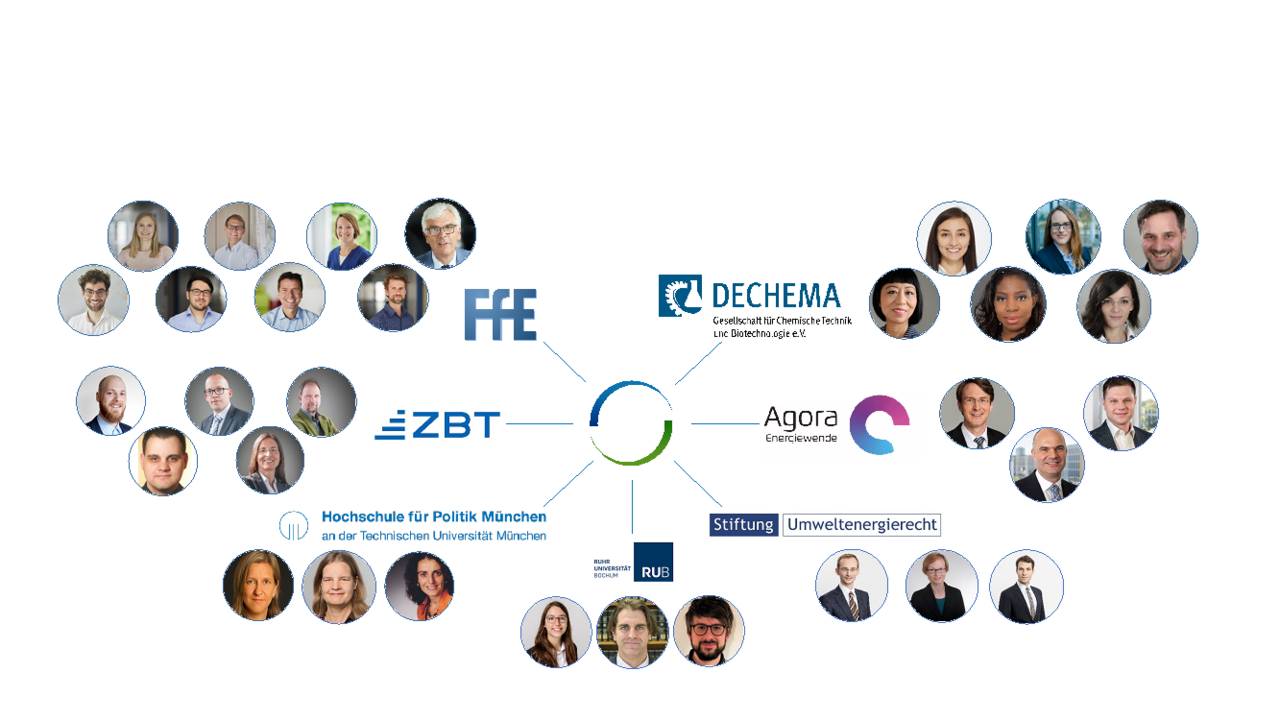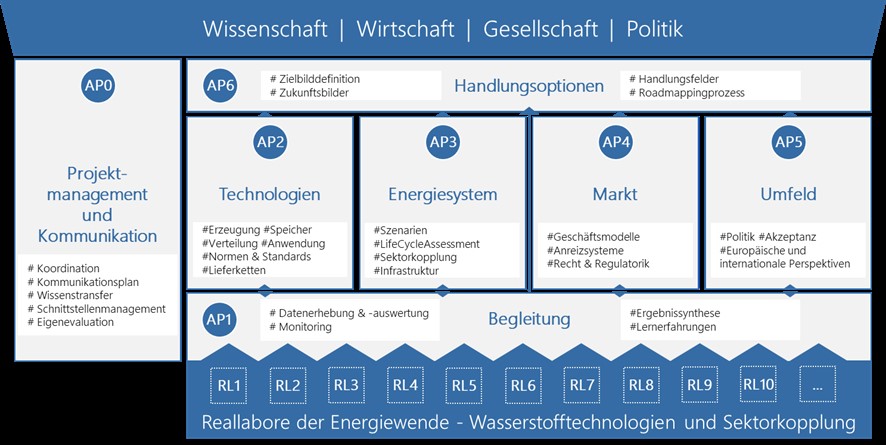Trans4ReaL - Scientific Transfer Research for the Living Labs of the Energy Transition on Sector Coupling and Hydrogen Technologies
The National Hydrogen Strategy adopted by the German government in 2020 is aimed at making green hydrogen marketable.
As early as 2019, the German Federal Ministry for Economic Affairs and Climate Action (BMWK – former Federal Ministry for Economic Affairs and Energy, BMWi) launched the ideas competition “Living Labs of the Energy Transition”. This provides an opportunity for companies and participating stakeholders to test technical as well as non-technical innovations in the fields of hydrogen technologies and sector coupling in real-world environments and on an industrial scale.
The aim is, firstly, to further develop the technologies and processes already tested in the Living Labs so that industrial production, transportability, and usability can be transferred to other spatial scales (local, regional, national, etc.) and thus - secondly – to facilitate the creation of a stable domestic market for hydrogen technologies.
To ensure that the findings from the Living Labs are scientifically supported and can be processed and contextually located for further conceptual-strategic use, the BMWK set up scientific transfer research for the Living Labs in the form of the joint project Trans4ReaL, which was initiated on April 1, 2021.
Trans4ReaL's task is to provide scientific supervision for the Living Labs of the energy transition, to compile further findings and, as far as possible, to formulate generalizable statements and courses of action. The research team will analyze different hydrogen paths and future business models as well as socio-technical and regulatory framework conditions for the future marketability of green hydrogen in the Federal Republic of Germany, in line with (inter-)national developments.
Duration: 01.04.2021 - 31.03.2026
Project partners:
Agora Energiewende, Dechema Gesellschaft für Chemische Technik und Biotechnologie e. V., Forschungsstelle für Energiewirtschaft e. V. (FfE) (project management), Ruhr Bochum University, Stiftung Umweltenergierecht and Zentrum für Brennstoffzellen Technik GmbH.

The Trans4ReaL project is funded by the German Federal Ministry of Economics and Climate Action (BMWK) (funding code: 003EWT001G).
Content
Within the joint project, the Chair of Environmental and Climate Policy at the Department of Governance/TUM School of Social Sciences and Technology is responsible for the political and socio-technical analysis of the development of hydrogen technologies. The development will be analyzed at the local and national level, while also taking development at the European and international level into consideration. By using policy-, discourse-, and acceptance-analyses, an in-depth look at developments in energy policy and society is taken (see work package Environment [AP5] in Fig. 2).
Special attention will be paid to the attitude of different social actors towards the use and transport of hydrogen and its significance for the structural change in energy policy. Of particular interest is the reaction of societal groups to the different production methods and applications of hydrogen. The researchers will examine path dependencies and the socio-technical configurations of technology applications that positively or negatively influence the diffusion process. They will also investigate expert dissent, science-policy interfaces, technology ideals and expectations, as well as learning processes and motives of the different actors.
Guiding research questions of the work package include:
· How do technology and society interact in decision-making processes related to the testing and introduction of hydrogen technologies?
· How do political, economic, and societal conditions influence the political discourse to establish hydrogen technologies as core elements of the energy transition?
· How do politics, business, and industry affect societal discourses and processes?
· To what extent are opportunities and platforms made available to facilitate the participation of interested actors in technical debates and decisions?
The socio-technical findings (such as the benefits of hydrogen on the journey towards climate neutrality, interests and power relations of the different actors, acceptance, and acceptability of hydrogen in society) will be compared and analyzed nationally and internationally. This analysis will generate insights into the sustainable industrial transformation as well as the resulting challenges and opportunities for Germany as a technology and business location. To ensure dissemination of the results, they will be communicated to politicians, businesses, and industry leaders, as well as to the scientific community and society.






